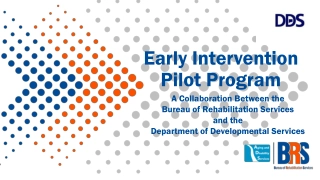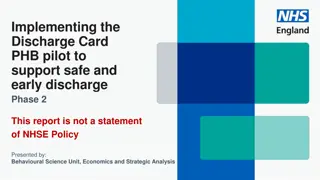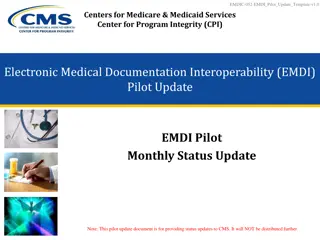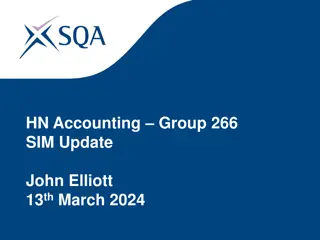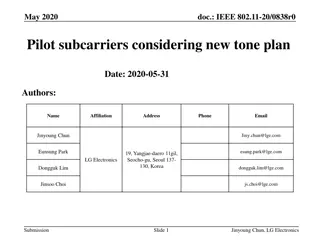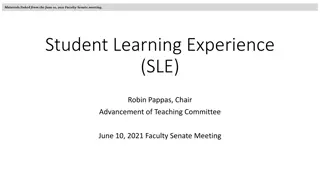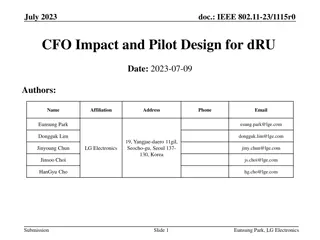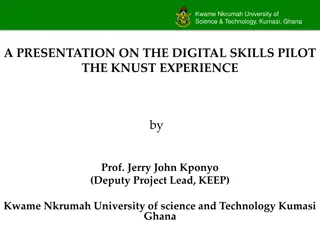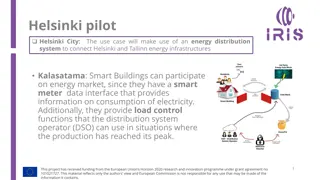
Pilot Study: Definition, Importance, and Key Points
A pilot study, also known as a feasibility study, is a preliminary research method that evaluates the potential for a full-scale project. This study helps identify design issues, assess feasibility, resources, and costs before conducting the main research. Discover the advantages, limitations, and significance of pilot studies in research.
Download Presentation

Please find below an Image/Link to download the presentation.
The content on the website is provided AS IS for your information and personal use only. It may not be sold, licensed, or shared on other websites without obtaining consent from the author. If you encounter any issues during the download, it is possible that the publisher has removed the file from their server.
You are allowed to download the files provided on this website for personal or commercial use, subject to the condition that they are used lawfully. All files are the property of their respective owners.
The content on the website is provided AS IS for your information and personal use only. It may not be sold, licensed, or shared on other websites without obtaining consent from the author.
E N D
Presentation Transcript
StudyMafia.Org Pilot Study Submitted To: Submitted By: Studymafia.org Studymafia.org
Table Contents Definition Introduction Key-Points of Pilot Study About Pilot Study Advantages of Pilot Study Limitations of Pilot Study Conclusion 2
Definition A pilot study, also called a 'feasibility' study, is a small scale preliminary study conducted before any large-scale quantitative research in order to evaluate the potential for a future, full-scale project. 3
Introduction Pilot studies are a fundamental stage of the research process. They can help identify design issues and evaluate feasibility, practicality, resources, time, and cost of a study before the main research is conducted. Pilot studies can play a very important role prior to conducting a full-scale research project 4
Key-Points of Pilot Study It involves selecting a few people and trying out the study on them. It is possible to save time, and in some cases, money, by identifying any flaws in the procedures designed by the researcher. Sometimes the task is too hard, and the researcher may get a floor effect, because none of the participants can score at all or can complete the task all performances are low. 6
Key-Points of Pilot Study A pilot study can help the researcher spot any ambiguities (i.e. unusual things) or confusion in the information given to participants or problems with the task devised. The opposite effect is a ceiling effect, when the task is so easy that all achieve virtually full marks or top performances and are hitting the ceiling . 7
About Pilot Study Pilot studies also provide researchers with preliminary data so they can gain insight into the potential results of their proposed experiment. However, pilot studies should not be used to test hypotheses since the appropriate power and sample size are not calculated. Rather, pilot studies should be used to assess the feasibility of participant recruitment or study design. 8
About Pilot Study By conducting a pilot study, researchers will be better prepared to face the challenges that might arise in the larger study, and they will be more confident with the instruments they will use for data collection. In some studies, multiple pilot studies may be needed and qualitative and/or quantitative methods may be used. 9
Advantages of Pilot Studies Increasing research quality Assessing the practicality and feasibility of the main study Testing the efficacy of research instruments Identifying and addressing any weaknesses or logistical problems Collecting preliminary data Estimating the time and costs required for the project 11
Advantages of Pilot Studies Determining what resources are needed for the study Identifying the necessity to modify procedures that do not elicit useful data Adding credibility and dependability to the study Pretesting the interview format Enabling researchers to develop consistent practices and familiarize themselves with the procedures in the protocol. 12
Limitations of Pilot Studies Require extra costs, time, and resources. Do not guarantee the success of the main study. Contamination (ie: if data from the pilot study or pilot participants are included in the main study results). Funding bodies may be reluctant to fund a further study if the pilot study results are published. 13
Conclusion A pilot study can be used to evaluate the feasibility of recruitment, randomization, retention, assessment procedures, new methods, and implementation of the novel intervention. A pilot study is not a hypothesis testing study. Safety, efficacy and effectiveness are not evaluated in a pilot. 15
References Google.com Wikipedia.org Studymafia.org Slidespanda.com
Thanks To StudyMafia.org

